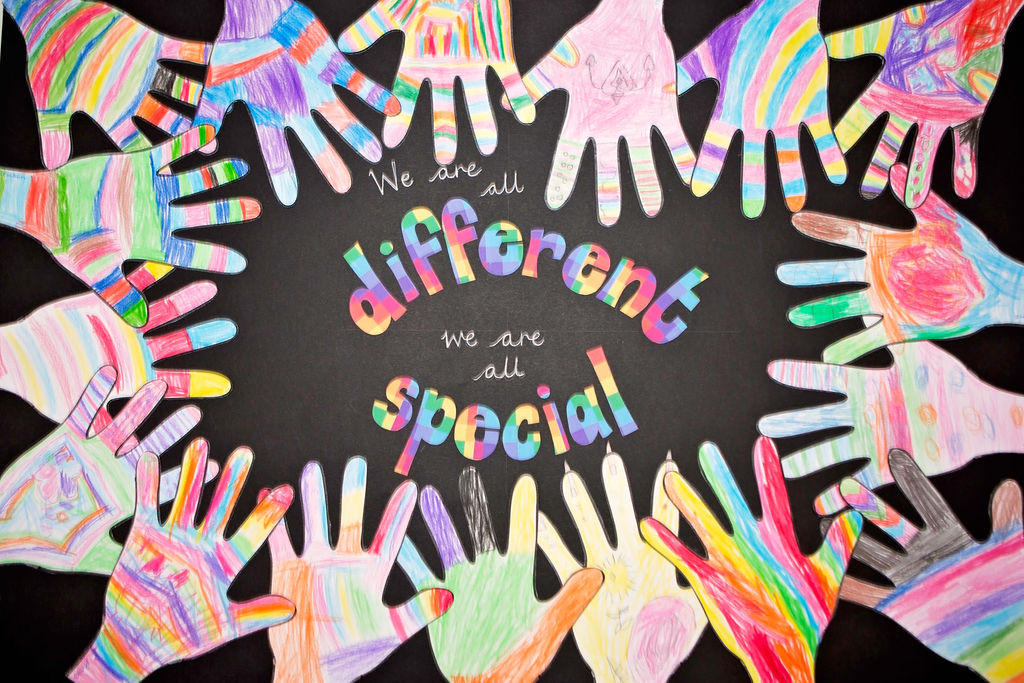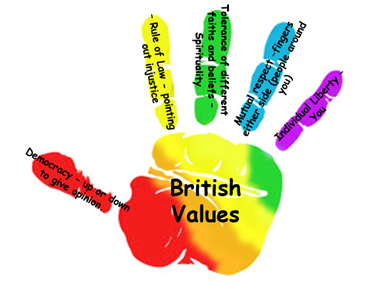Equality & British Values
 Equality
Equality
Wootton Bassett Infants is committed to the learning and development of all of its pupils and encourages them to participate and achieve in every aspect of school life. We aim for equal opportunities for all members of our school community and are committed to being a fully inclusive school. We welcome all pupils, parents, carers, visitors and staff regardless of their race, colour, creed or impairment.
More information about our Equality Objectives and Policies can be found on our Policies page
Equality Information 2025-2026
British Values
We have a duty to ‘actively promote’ the fundamental British values of democracy, the rule of law, individual liberty, and mutual respect and tolerance of those with different faiths and beliefs. Schools must now have a clear strategy for embedding these values and show how their work with pupils has been effective in doing so. Along with other countries around the world, Britain is signed up to these values, and in addition to these, there are many other values that we promote in school life, for example: friendliness, courage, care, respect, aspiration, selflessness, forgiveness, kindness, equality, freedom and generosity. The British values form part of a schools’ work to promote the spiritual, moral, social and cultural development of children. Social development of pupils is shown when they accept and engage with these values and develop and demonstrate skills and attitudes that will allow them to participate fully in, and contribute positively to, life in modern Britain. This is all part of equipping children to be thoughtful, caring and active citizens in school and in wider society.
Thumb and Finger Model
We help children to remember the British Values through the thumb and finger model

- Thumb – Democracy – up or down to give opinion.
- Index finger – Rule of Law - pointing out injustice
- Middle finger – Tolerance of different faiths and beliefs – spirituality
- Ring Finger – Mutual respect –Fingers either side (people around you) – respect for other people
- Little finger – Individual Liberty – You
Democracy – what do we do?
- Class voting for the election of school and Eco councillors at
the start of the year
- Exploring desirable attributes of
a school councillor
- Provide pupils with a broad general
knowledge of, and promote respect for, public institutions and services e.g.
fire service, NHS, council libraries
- Teach pupils how they can
influence decision-making through the democratic process (e.g. Reception book
voting)
- Taught through assemblies and our
school curriculum
- Encourage pupils to become
involved in decision-making processes and ensure they are listened to in school
(e.g. school and eco councillor meetings, pupil voice questioning)
- Help pupils to express their
views (e.g. discussing their likes/dislikes)
- Model how perceived injustice can be peacefully challenged (e.g. activities during Diversity Week)
- Talking about people who help us in this country
Rule of law – what do we do?
- Class rules and celebration of adhering to these rules
- Help pupils to distinguish right from wrong
- Help pupils to respect the law and the basis on which it is made
- Help pupils to understand that living under the rule of law protects individuals
- Ensure school values and expectations are clear and fair
Individual liberty – what do we do?
- Support pupils to develop their
self-knowledge, self-esteem, self-confidence
- Encourage pupils to take
responsibility for their behaviour, as well as knowing their rights
- Model freedom of speech through
pupil participation, while ensuring protection of vulnerable pupils
- Challenge stereotypes
- Implement a strong anti-bullying
culture
- E-Safety lessons throughout school and parents and staff receive training on these
- Circle times/register- e.g.
saying one good thing about myself, my favourite colour, one thing I like doing
etc.
Mutual Respect and tolerance of different cultures
and religions– what do we do?
- Explore positive role models
through our topics (e.g. Floella Benjamin, Neil Armstrong, Lilian Bader, Julia
Donaldson)
- Challenge prejudicial or
discriminatory behaviour
- Organise visits to places of
worship (e.g. Reception visit to St Barts.)
- Celebrate different festivals and
celebrations throughout the year Diwali, Eid and Christmas
- Our RE scheme ensures that our
children have a good understanding of a range of religious beliefs and customs
- Help pupils to acquire an
understanding of, and respect for, their own and other cultures and ways of
life
- Use of oracy hand gesture to
disagree in a respectful way with the answers of others whilst in class (e.g.
thumbs up/thumbs down, I agree/disagree because…)
- PSHE lessons reinforce messages of tolerance and respect for others and we regularly include opportunities to learn about people from different backgrounds into our curriculum planning (e.g. Diversity Week)
- Multicultural activities
illustrate our commitment to exploring our diverse school community (e.g.
studying Ghana in Year 2)